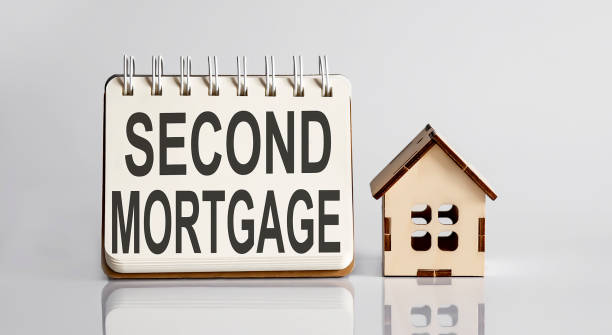Taking out a second mortgage or charge on your home comes with pros and cons that must be carefully weighed. This extensive guide will explore what a second charge entails, when it may make sense, alternative options, and important factors to consider so you can make the right choice for your financial situation.
What is a second-charge mortgage?
A second-charge mortgage, also known as a second-charge loan, refers to a type of secured loan where your home is used as collateral for borrowing additional funds on top of your existing mortgage.
Your first mortgage is considered the primary or “first charge” on your home. Taking out a second charge means the lender registers a second legal claim on your property that ranks below the first mortgage. This allows them to recoup their loan if they are unable to repay by selling their home.
While similar in structure to a normal mortgage, second charges tend to be smaller loans ranging from £7,500 to £50,000 with shorter repayment periods of 1-15 years. Interest rates are usually higher compared to a standard remortgage since there is an increased risk for the lender if you default.
Some key things to understand about second charges:
- Your home is used as collateral, like with a first mortgage. If you default on payment, the lender can repossess and sell your property to claim their money.
- Multiple second charges can be placed on a property but the total value of all loans cannot exceed 20-25% of your home’s value.
- Repayments are made through equal monthly installments like a normal mortgage, but interest rates tend to be higher.
- Fees apply, such as arrangement, valuation, and early repayment charges if you settle the balance early.
- Credit checks are conducted, and your existing finances and debts are scrutinized during the application process.
So in summary, a second charge gives homeowners secured borrowing power beyond a remortgage, but it also involves greater risk and costs than mainstream mortgage options.
When would a second charge make sense?
While not the most cost-effective borrowing option in all cases, there are certain scenarios where taking out a second charge mortgage may be a suitable choice:
Home improvements
A second charge is commonly used to fund significant renovations, extensions, or overhauls that add value and desirable features to your home. Things like new kitchens, bathrooms, double glazing, or loft conversions are classic projects financed this way.
Debt consolidation
If you have multiple debts like credit cards, personal loans, or store cards at high-interest rates, consolidating it all into one affordable second-charge payment can save on interest costs in the long term. Just be sure not to take on new debts afterward.
Self-employed borrowers
Those who are self-employed or have an irregular income may find it easier to qualify for a second charge compared to a traditional mortgage, which looks more closely at income proof.
Good credit history
Borrowers with an excellent payment history on their current mortgage and low existing loan-to-value ratios stand a better chance of securing competitive second-charge rates and terms.
Bridge short-term needs
In some cases, a short-term second charge can help “bridge the gap” if one needs cash urgently while other long-term financing is arranged, such as selling an investment property.
So, in the right context, where future home value is added or high-cost debts are reduced, a second-charge mortgage has the potential to make financial sense. But they demand thorough research to compare all options.
Alternative sources of funds
Before committing to a second charge, homeowners should explore affordable alternatives that may avoid additional secured debt and interest charges:
Remortgage
If eligible, a remortgage transfers your current deal to a better interest rate, potentially freeing up equity or your monthly budget for other needs without adding high-rate secured debt.
Personal loan
For smaller, shorter-term needs, an unsecured personal loan from a bank or credit union is worth comparing. Rates tend to be lower than second charges, and there’s no property security involved.
0% purchase credit cards
Some credit cards offer 0% interest on balance transfers or purchases for up to 21 months. While incurring debt, this delays interest costs and may be preferable to sourcing funds from an expensive second charge.
Homeowner loans
Some lenders offer short-term, interest-free loans against property equity that don’t register as a formal second charge. Repayments are due once the property sells.
Savings and loans from family/friends
Exhaust all Reserve and Retirement funds as well as informal borrowing from close connections before considering higher-cost secured lending from professionals. The interest saved can be significant.
Weighing unsecured and lower-interest options first is advisable before registering a second legal claim over your home. Doing so commits future property value and flexibility that may not be necessary.
Factors to consider before applying
To avoid potential pitfalls, homeowners must go in with eyes open about all second charge repercussions. Careful reflection on these key factors ahead of time can prevent later issues:
Impact on Mortgage Affordability
Extra monthly payments reduce disposable income and stress-test your budget, so be certain existing debts and commitments can still be comfortably met each month. Over-committing leads to financial struggle.
Effect on property value
Each additional charge lowers equity in your home, which may stall future house moves or limit your ability to further borrow against property wealth. Be sure investments to the property from loan funds really boost your worth over the long haul.
Early repayment charges
Nearly all second-charge deals levy substantial fees if settled before the agreed term ends. Consider this cost, as life circumstances sometimes demand early loans be paid off when not budgeted for initially.
Potential for repossession
As with any secured debt, falling behind on second-charge repayments allows your lender to force the sale of your property, resulting in potential home loss. Ensure you have financial safeguards and insurance in place.
Total loan-to-value limits
The value of all mortgages and charges against a property cannot exceed certain percentages. Applying for a sizable second charge could hit regulatory limits and reduce refinancing options down the line.
Interest rate fluctuations
While fixed-term deals exist, variable second charge rates can climb over time, increasing future payments that must again be budgeted for. Factor ongoing affordability over the lifetime of the loan.
Taking a methodical approach considering these longer-term implications will help determine if a second charge truly makes financial sense in your personal situation or if exploring alternatives would be wiser.
The application process
Once alternatives are considered and a second charge still seems preferable, the application procedure mirrors mainstream mortgages in many ways:
- Submit an online application form providing personal, income, property, and existing loan details.
- Expect a hard credit check pulling your full credit report that lowers your available score points for a short period.
- Provide proof documents like pay slips, bank statements, and identification. Self-employed will need financial accounts.
- Property valuation is ordered to establish current market worth as security for the loan.
- An automatic mortgage payment setup is mandatory to repay capital and interest in regular installments.
- A formal offer letter outlines the approved amount, repayment term, interest rate, fees, and conditions for acceptance.
- Legal contracts covering the loan terms and registered charges over your property need signing.
- Funds are released once all paperwork and Land Registry documentation is in order.
Most second charge applications are decided within 3-4 weeks, pending fast credit check clearance and property appraisal turnaround. Be as proactive as possible to avoid delays that push back access to needed capital.
Frequently Asked Questions
Here are answers to some commonly asked questions about second-charge mortgages:
Do I need mortgage payment protection insurance?
While not mandatory, payment protection insurance is strongly advised for second charges to cover mortgage payments if illness, disability, or job loss affects your income. Without it, you risk losing your home if you are unable to service debt.
How long do second-charge interest rates last?
Second charge rates are usually fixed for 2-5 years, protecting your payments, after which they may rise unless remortgaging. Check the term and plan for potential rate hikes at the end.
Can I overpay my second charge early?
Yes, most lenders allow overpayments that go directly toward capital, lowering interest costs over time. However early settlement charges still apply if fully clearing the balance before the fixed period ends.
What if I want to remortgage or move home?
Outstanding second charges complicate any moves involving your property. Lenders usually require charges to be settled in full first from sale or remortgage proceeds before facilitating transactions on the main mortgage.
Can credit issues still affect applications?
While second charges can consider applicants with less-than-perfect credit histories, major black marks like insolvencies, county court judgments, or missed loan payments within the last six years still greatly hinder approval chances with most lenders. Your situation must seem able to repay their risk.



